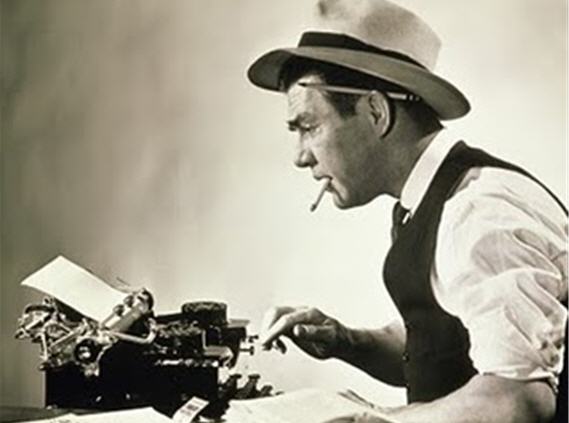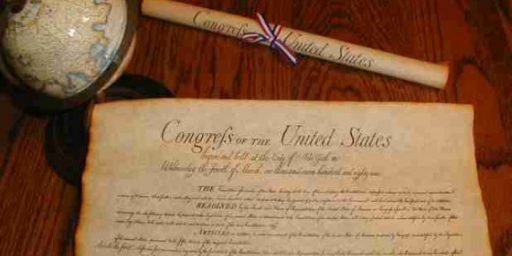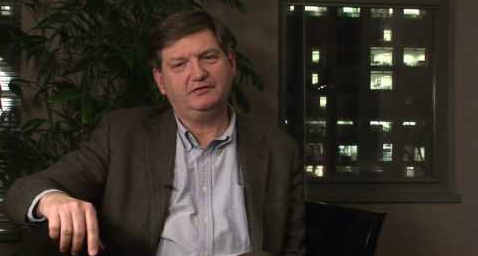Supreme Court Passes On Appeal From Journalist Threatened With Contempt Citation
The Supreme Court rejected another opportunity to clarify Federal Law on testimonial immunity for journalists.
There wasn’t much excitement out of today’s first SCOTUS June decision day, three decisions handed down two of which were in patent cases. In the third case, the Court struck down the conviction of a woman under the Federal law that implements the Chemical Weapons Convention, holding that Congress did not intend the law to be applied to domestic crimes such as the one at issue in this case. The Court also announced its latest round of appeals grants and refusals, and included among those was its refusal of the appeal of New York Times reporter James Risen of an order compelling him to reveal the source of certain information in his book State Of War regarding the Iranian nuclear program:
WASHINGTON — The Supreme Court on Monday turned down an appeal from James Risen, a New York Times reporter facing jail for refusing to identify a confidential source.
The court’s one-line order gave no reasons but effectively sided with the government in a confrontation between what prosecutors said is an imperative to secure evidence in a national security prosecution and what journalists said is an intolerable infringement of press freedom.
The case arose from a subpoena to Mr. Risen seeking information about his source for a chapter of his 2006 book “State of War.” Prosecutors say they need Mr. Risen’s testimony to prove that the source was Jeffrey Sterling, a former Central Intelligence Agency official.
The United States Court of Appeals for the Fourth Circuit, in Richmond, Va.,ordered Mr. Risen to comply with the subpoena. Mr. Risen has said he will refuse.
The Obama administration has sent mixed signals in the case and on the subject of press freedom in general. In its Supreme Court brief in the case, Risen v. United States, No. 13-1009, it told the justices that “reporters have no privilege to refuse to provide direct evidence of criminal wrongdoing by confidential sources.”
But Attorney General Eric H. Holder Jr. hinted last week that the Justice Department might choose not to ask the trial judge to jail Mr. Risen for contempt should he refuse to testify.
The Obama administration has pursued leaks aggressively, bringing criminal charges in eight cases, compared with three under all previous administrations combined.
At the same time, the administration has supported efforts in Congress to create a federal shield law that would allow judges to quash some subpoenas to journalists. The Justice Department has also issued new internal regulations limiting the circumstances in which prosecutors can subpoena reporters’ testimony and records.
The Supreme Court has not directly addressed whether journalists have protections from subpoenas since its 1972 ruling in Branzburg v. Hayes. In that 5-to-4 decision, the court ruled that the First Amendment provided no such protection against grand jury subpoenas.
Justice Lewis F. Powell Jr. joined the majority but also wrote a short, cryptic concurrence calling on judges to strike the “proper balance between freedom of the press and the obligation of all citizens to give relevant testimony.”
For decades, press lawyers had considerable success in persuading courts to interpret the concurrence broadly. That run of victories started to wane in 2003, when Judge Richard A. Posner of the United States Court of Appeals for the Seventh Circuit, in Chicago, surveyed the legal landscape.
“A large number of cases conclude, rather surprisingly in light of Branzburg, that there is a reporter’s privilege,” he wrote.
This development comes less than a week after the Supreme Court refused to grant an appeal in a different case that invoked the issue of the journalistic privilege. In that case, a Fox News reporter was threatened with being compelled to reveal the source of certain information she had received regarding Aurora, CO movie theater shooter James Holmes. The Court’s refusal to grant the appeal let stand a ruling from New York’s highest court that ruled that the reporter did not have to testify. This refusal, of course, lets stand a ruling from the Fourth Circuit that essentially means that Risen will likely eventually face the choice of either revealing his source(s) or going to jail likeTimes reporter Judith Miller did in connection with the Valerie Plame matter.
As I’ve said before, it’s often a mistake to try to draw conclusions from the Court’s refusal to grant an appeal beyond the rather obvious conclusion that there were not four Justices who wanted to hear the case. However, it seems apparent that the Court is reluctant to revisit its decision in Branzburg, at least with a case of this kind. If Risen’s case involved something other than intelligence matters, in fact, it’s entirely possible that the Court might have agreed to accept it and, hopefully, provide some guidance to Federal Courts who are trying to reconcile a court decision that is more than 40 years old with a legal reality in which journalist shield laws are recognized by the legislatures and courts of nearly every state in the nation.
The other obvious solution, of course, would be for Congress to act on this matter. However, while there was a proposed shield law introduced in the Senate last year and there have been some hearings on the matter since then, there has been next to no legislative action on the matter in the upper chamber, and none at all in the House of Representatives. Realistically, it is unlikely that Congress is going to act on this matter before the end of the year, meaning that the Senate bill will die and would have to be revived in the next session of Congress. However, absent some event that brings this issue into focus again, though, it seems unlikely that we’d see any real pressure on Congress to act here. Which leaves it up to the Supreme Court to step in and speak on the matter. So far, though, the Justices don’t seem willing to do so.







Posner:
“The press is wrong to demand a reporter’s privilege for James Risen.”